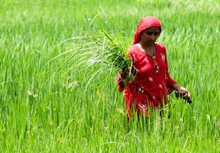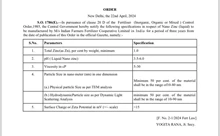
Environment ministers from European Union (EU) countries have come to an agreement on a groundbreaking bill aimed at revitalizing deteriorating natural habitats. However, certain aspects of the proposal were diluted, and it was decided to secure additional EU funding for the restoration of damaged environments.
The EU's endeavor to address the declining state of Europe's natural habitats, with 81% of them currently classified as poor, has sparked intense political debates. Lawmakers within the EU and some governments have expressed opposition to the bill, questioning whether the EU is burdening industries with excessive environmental regulations.
Although EU countries have expressed their support for the bill, their agreement was contingent upon the European Commission's commitment to proposing financial assistance from the EU to facilitate nature restoration efforts, if deemed necessary. During the negotiations, Hungary, Italy, and Romania were among the countries advocating for increased support, while Germany initially opposed the creation of a new EU fund.
Several modifications were made to the original proposal put forth by the European Commission. Notably, an obligation to ensure that the condition of mudflats, grasslands, forests, and other habitats does not deteriorate was replaced with an aim to "endeavor to put in place necessary measures" to prevent such deterioration.
In addition, it was noted that targets to revive drained peatlands had been relaxed due to requests made by countries such as Ireland. Ireland relies on dried bogs for agriculture and uses peat as a fuel source. Irish climate minister Eamon Ryan expressed contentment with the compromise reached and conveyed a sense of optimism, stating that it provided hope that the destruction of nature could be avoided. He further highlighted that the compromise successfully avoided imposing restrictions that could impede the economic progress of countries.
However, the densely-populated Netherlands objected to the deal, as it raised concerns about potential hindrances to the expansion of wind farms and other economic activities. Finland, Italy, Poland, and Sweden also expressed opposition. EU climate chief Frans Timmermans expressed no concerns regarding the modifications made by countries to render the law more flexible. However, he criticized members of the European Parliament who are attempting to obstruct the law and refusing to engage in negotiations.
Both EU countries and the European Parliament must approve the final bill for it to be enacted. Timmermans expressed his disappointment at those attempting to politicize climate policy, stating that it created a tribal opposition where facts ceased to matter.
The largest lawmaker group in the EU Parliament is leading a campaign to reject the law, arguing that allocating more space for biodiversity-enhancing features on agricultural land would pose a threat to food production.











